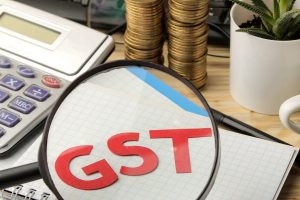
The Kerala High Court on July 23 said that the services provided by the Kerala chapter of the Indian Medical Association (IMA) to its members came within the ambit of the Goods and Services Tax (GST). The IMA has all along placed itself outside the tax net by taking cover under the ‘principle of mutuality,’ which essentially meant that the association and its members were one.
The IMA argued in court that since itself and its member doctors were one, it was illogical to assume that an entity could supply goods and services to itself. The fundamental reasoning was that a person cannot trade with self.
The HC, however, ruled that the ‘principle of mutuality’ would be superseded by the powers conferred on Parliament by Article 246 (A). The Article empowers the Parliament and the State Legislature to enact laws to impose a tax on the supply of goods and services.
In 2021, Parliament had made an amendment to the Goods and Services Act, inserting Section 7(1)(aa). This section included within the meaning of ‘supply’ the transactions of a club or association with its members or constituents.
In the explanation given for the new section, the amendment says that “the person and its members or constituents shall be deemed to be two separate persons and the supply of activities or transactions inter se shall be deemed to take place from one such person to another.” In other words, the amendment parted the Siamese twins and made them – the club and its members – two different entities.
It was this amendment that empowered the Directorate General of GST Intelligence (DGGI) to swoop down on the IMA. After a series of investigations into IMA activities since November 2022, the DGGI pulled up the doctors’ body for non-payment of GST in June 2023. According to the DGGI, more than 90 per cent of IMA’s activities are non-charitable. It wanted the IMA brought within the GST net with retrospective effect, from July 1, 2017, the day the GST came into force in the country.
The IMA responded with a writ petition in the HC. The IMA argued that it was beyond the powers of Parliament to do away with the ‘principle of through the amendment of a mere Act; in this case, the GST Act.
The doctors’ body said that no less than a Constitutional amendment was required to make the concept of mutuality disappear. In other words, for the mutuality principle to be fully blotted out, Article 246(A) itself has to be amended to specifically include self-sale and self-services within the meaning of supply of goods and services.
However, the HC held that the amendment of the GST Act was enough to strike out mutuality for tax-related matters. “The amendment is neither beyond legislative competence nor offends any of the fundamental rights guaranteed under Part III of the Constitution of India nor is manifestly arbitrary or capricious,” the HC ruled.
Nonetheless, the HC has prohibited the DGGI from retrospectively collecting GST dues from the IMA. The Court said that the GST could be collected only from January 1, 2022, when Section 7(1)(aa) was notified.
The Court said that the principle of mutuality was in vogue till the Section 7(1)(aa) amendment was notified on January 1, 2022. In this period, the Court noted, the GST authorities had never issued a notice to the petitioner for payment of GST. “Thus, before the amendment was brought in inserting Section 7(1)(aa) by the Finance Act, 2021, the law of mutuality was well established in the principle of taxation in case of supply of goods and services by clubs/associations to its members,” the Court said.
A top DGGI source said that the Directorate would soon file an appeal on the retrospective aspect of the amendment.
Source: Onmanorama


